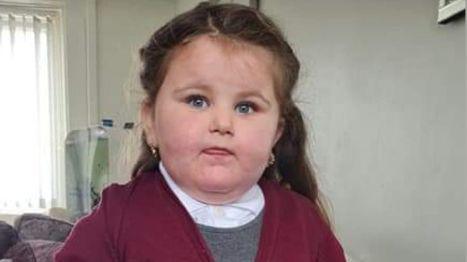Staff levels in A&E 'unsafe' before girl's death
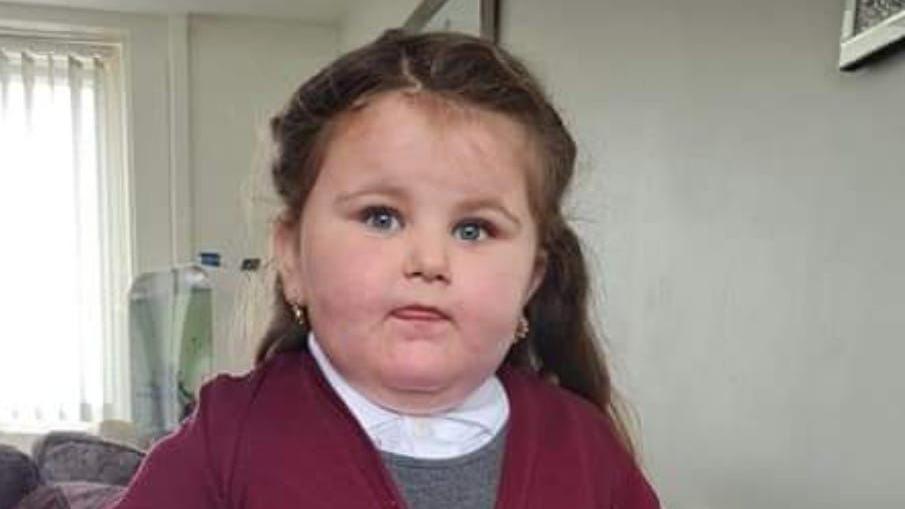
Makenna-Rose Thackray died one month short of her fifth birthday
- Published
Staffing levels in an hospital emergency department where a sick child waited for six hours without being seen by a doctor shortly before her death were "unsafe", an inquest has heard.
Makenna-Rose Thackray died on 20 December 2022, less than 48 hours after her parents took her home from Pinderfields Hospital in Wakefield, where they had endured a fruitless wait for a clinical assessment.
The four-year-old, from Rothwell, had been taken to hospital by ambulance on 18 December after she vomited blood, having been diagnosed with scarlet fever earlier that month.
Nurse Helen Parker, who was on duty in the children's A&E on the night in question, said that evening had been "one of the worst" shifts she had known.
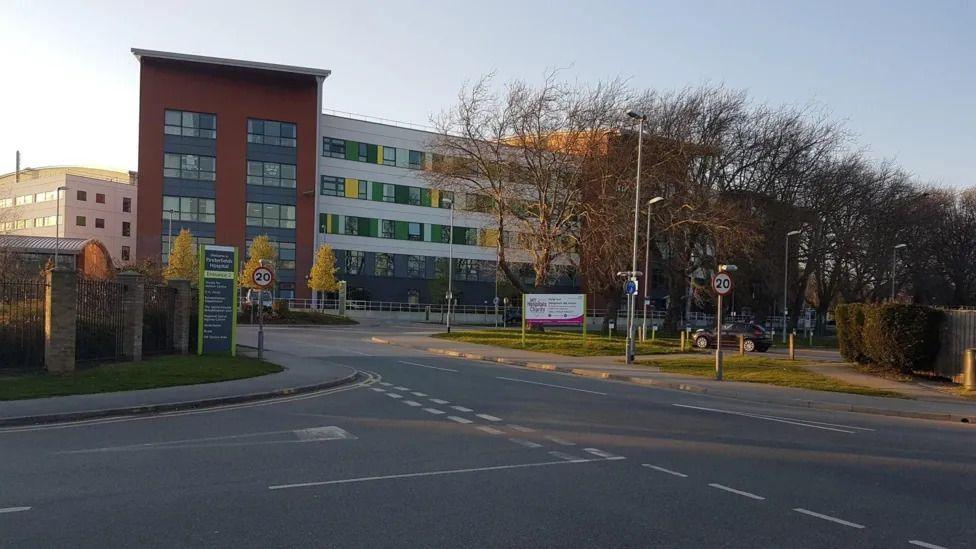
The inquest was told waiting times in Pinderfields Hospital's children's A&E department were around seven-and-a-half hours on the night in question
Giving evidence on the second day of the inquest at Wakefield Coroner's Court, Ms Parker said she and the one other nurse on duty in the department saw 79 sick children between them across their shift on the night Makenna-Rose was admitted.
The inquest, which is being heard by a jury, was told two nurses could safely deal with between 30 and 40 patients between them.
The proceedings had earlier heard that patients in the children's A&E typically waited seven-and-a-half hours to be seen on the night in question.
Asked by barrister Richard Copnall, who is representing Makenna-Rose's family, if the department's staffing levels were unsafe at that point, Ms Parker replied: "Absolutely, yes.
"It is the situation of the NHS at the minute. We were very stretched.
"That night was probably one of the worst."
'Massively' impacted
The inquest had previously been told Makenna-Rose had been diagnosed with scarlet fever, caused by the bacterial infection Strep A, on 9 December.
The disease causes a high fever and sore throat and can be dangerous in young children if left untreated.
There was a Strep A outbreak across the UK in late 2022, which Ms Parker said "massively" impacted the children's emergency department, with numbers "rising daily" up to the night Makenna-Rose was admitted.
The Mid Yorkshire Teaching NHS Trust, which runs Pinderfields, declared a major incident "a couple of nights afterwards", indicating huge waits in A&E, she said.
The jury was told that Ms Parker observed Makenna-Rose and deemed her condition serious enough to be escalated to a doctor.
However, the nurse said because the department was so busy and other children were deemed "sicker", she could not be assessed promptly.
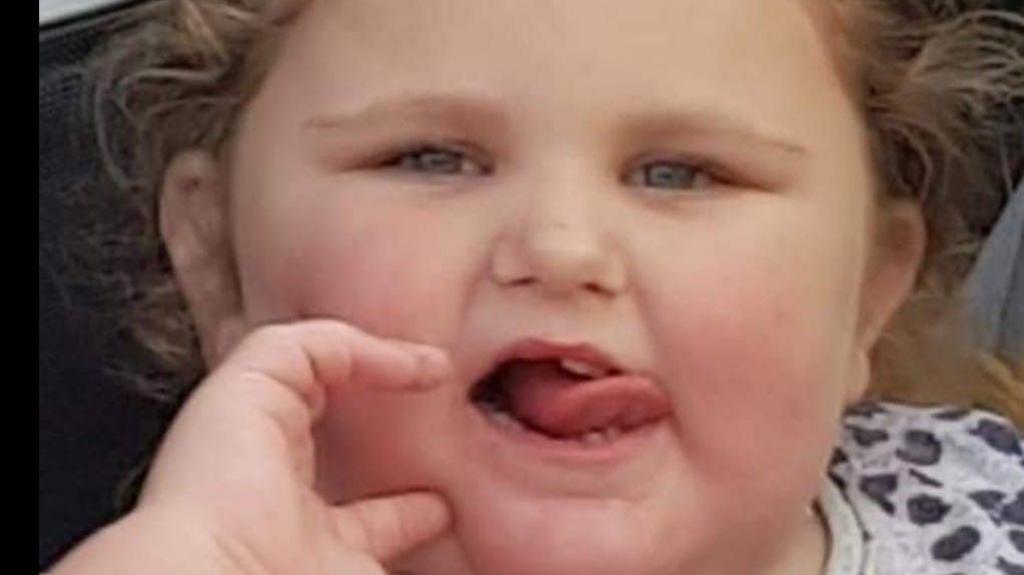
Makenna-Rose died just two days after waiting to be seen by a doctor in hospital
Although Makenna-Rose had a high temperature of 39.5C and was seen with dried blood around her mouth, she was described by Ms Parker as being "very active and giggling" while waiting to be seen.
In a statement previously read to the inquest, Makenna-Rose's mum, Danielle Ledger, said her daughter had been "poorly, lethargic and burning up" and that she got "hotter" as their wait in A&E continued.
However, after waiting for six hours until 01:30 GMT and with the child increasingly "exhausted", the family decided to leave and visit a GP later that day.
Miss Ledger said nurses at the hospital "did not encourage me to stay" when she self-discharged.
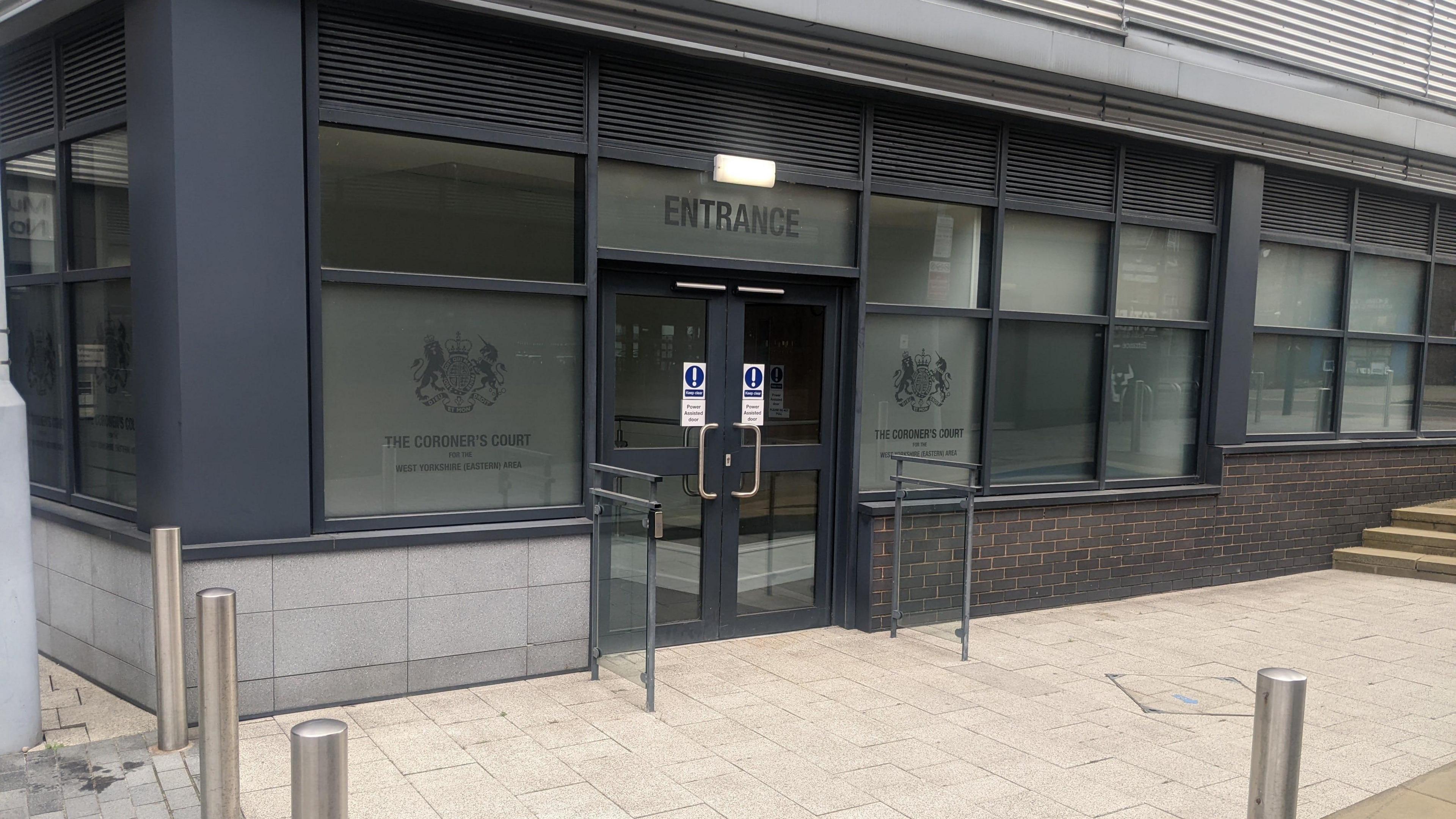
The inquest is being held at Wakefield Coroner's Court
But Ms Parker said that she was concerned enough about Makenna-Rose's condition to suggest the family stay.
She told the court: "I said I would have liked her to be seen by a doctor.
"I realised the situation was not ideal and I apologised for them not having been seen by a very long time, but I did encourage them to stay."
Giving his evidence to the inquest, the GP who saw Makenna-Rose on 19 December said he had diagnosed her and her parents with flu and confirmed he did not prescribe antibiotics as a result.
Dr Nand Kishar Nemana told the jury he had not been made aware that the primary school pupil had been vomiting blood or had been taken to A&E by ambulance the previous night.
He said if he had known, he would have "decided the child needs to be sent to hospital, because vomiting blood can't be taken lightly".
'Completely overwhelmed'
Makenna-Rose's parents were praised in court for their efforts to resuscitate their daughter as they waited for an ambulance to come to the family home when their daughter stopped breathing.
James Goulding, from the Yorkshire Ambulance Service (YAS), said he had listened to the recording of the couple's 999 call and told them: "Your courage and bravery that day was incredible.
"The fact you had that presence of mind, you should be highly commended for that."
Mr Goulding told the court that YAS had declared a critical incident just hours before Makenna-Rose died, because it was "completely overwhelmed that day".
However, the jury was told that paramedics had arrived at the scene within 11 minutes of the 999 call being answered, which Mr Goulding said was the "fastest we could have responded at that time".
The incident had been given Category One status - the highest priority type indicating an immediate threat to life - because Makenna-Rose had stopped breathing.
The inquest continues.
Follow BBC Yorkshire on Facebook, external, X (formerly known as Twitter), external and Instagram, external. Send your story ideas to yorkslincs.news@bbc.co.uk, external
Related internet links
Related stories
- Published8 July 2024
